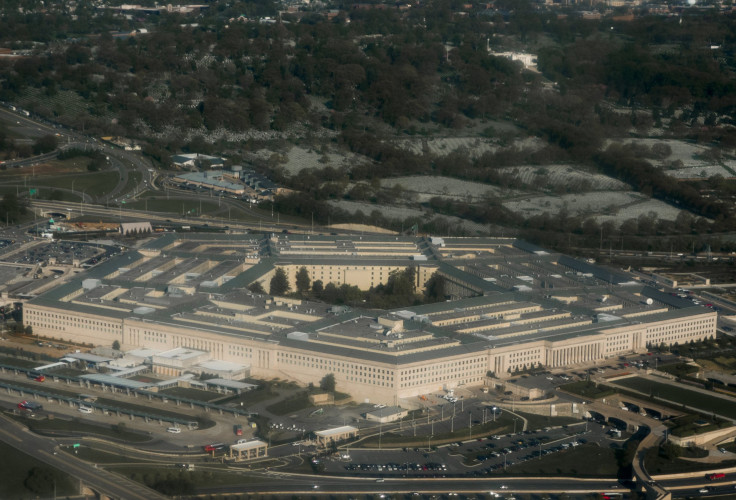The Pentagon Pulls The Plug On Boeing's Multibillion-Dollar Ballistic Interceptor

The Department of Defense is scrapping its effort to redesign the lethal tip on the nation's ballistic missile interceptors, canceling a program that could have been worth more than $5 billion to Boeing (NYSE:BA) and its partners.
The Redesigned Kill Vehicle (RKV) was abandoned effective Aug. 22 due to technical design problems, according to a Pentagon statement. Michael Griffin, the Pentagon's undersecretary for research and engineering, called ending the program "the responsible thing to do." Griffin had halted work on the RKV in May pending a review, and apparently did not like the conclusions that came out of that review.
"After exercising due diligence, we decided the path we're going down wouldn't be fruitful, so we're not going down that path anymore," Griffin said. "This decision supports our efforts to gain full value from every future taxpayer dollar spent on defense."
The decision, though not entirely unexpected, is both a setback for Boeing and Raytheon (NYSE:RTN) and a new opportunity for those two companies and a number of other large contractors.
An ambitious effort falls short
The RKV program is a Boeing-led effort, though the actual vehicle was to be built by Raytheon. The government had hoped to use it to replace its existing, and at times unreliable, Exoatmospheric Kill Vehicle (EKV). When the Missile Defense Agency first announced the RKV program in 2016, it said it expected a flight test in 2019 and fielding in 2020. Though the exact nature of the problems were classified, the latest fiscal budget request reset the fielding target to 2025.
The RKV, which is designed to separate from a booster rocket and intercept and destroy targets, was supposed to be part of a planned expansion of the Ground-Based Midcourse Defense system to 64 interceptors from 44, part of a broader effort to secure Hawaii and other U.S. territories against missile threats.
With the program largely classified, it is hard to say exactly what went wrong with the RKV or who, if anyone, was at fault. In the short time since the RKV program was established, the nature of missile threats has changed, with competitors including China and Russia making strides in developing hypersonic missiles able to travel more than five times the speed of sound.
The reboot will allow the Pentagon and its contractors a chance to rethink their anti-missile strategy to better handle the threat of hypersonics. It's possible that the decision to kill the RKV was based on the government's belief that retrofitting the existing work to better handle the challenge of new technologies would have been cost prohibitive.
Raytheon seemingly alluded to the changing parameters in its statement about the termination of the RKV, saying, "the U.S. Missile Defense Agency is updating its requirements in the face of an increasingly complex threat environment."
What now?
There's no public timetable for a new next-generation interceptor. But given the program's strategic importance, it seems likely the Pentagon will move as quickly as possible to process what it learned from the RKV and draw up new guidelines.
Boeing and Raytheon figure to be involved once again, and for the sake of speed, the government could run the new competition under Boeing's existing prime-contractor award. But the reboot also offers opportunities for companies including Lockheed Martin (NYSE:LMT) and Northrop Grumman (NYSE:NOC) to take larger roles.
Northrop Grumman already has a major role on the Ground-Based Midcourse Defense system, making both the command and control system and, thanks to its purchase of Orbital ATK, the booster rocket that it used.
The Pentagon, as part of a rethink of missile defense, could seek not only an improved kill vehicle, but also a refined booster rocket better able to handle modern missile threats. If so, that could be good news for Lockheed, which has established itself as a technological leader in U.S. hypersonics research.
In the near term, the decision could create additional opportunities for other programs, including Raytheon's ship-based SM-3 intermediate-range ballistic intercept. The Navy's efforts are not seen as an adequate long-term substitute to the more-comprehensive Ground-Based Midcourse Defense, but could see added investment if it is used as an interim, more-localized solution.
Lose the battle, win the war
The cancellation of the RKV is a reminder of what a tremendous challenge it is to design a system able to move through the outer layers of the atmosphere against fast-moving targets, and to future-proof the system against rapidly changing missile technologies.
Boeing's defense business has suffered through a number of self-inflicted wounds in recent years, but this particular setback is unlikely to further dent the company's reputation inside of the Pentagon or cost it future work. When experimenting with bleeding-edge science under an urgent deadline, there is an acceptance by military planners that all will not go as planned.
The takeaway for defense investors is that the government is continually willing to invest billions in projects deemed vital to national security. The procurements can be choppy and take years to fully fund, but the government's deep pockets and seemingly insatiable demand for new and better products are key parts of the bull case for buying into the industry.
The RKV effort was a failure, but there will still be a lot of opportunities for defense titans from missile defense in the years to come.
This article originally appeared in the Motley Fool.
Lou Whiteman has no position in any of the stocks mentioned. The Motley Fool has no position in any of the stocks mentioned. The Motley Fool has a disclosure policy.





















